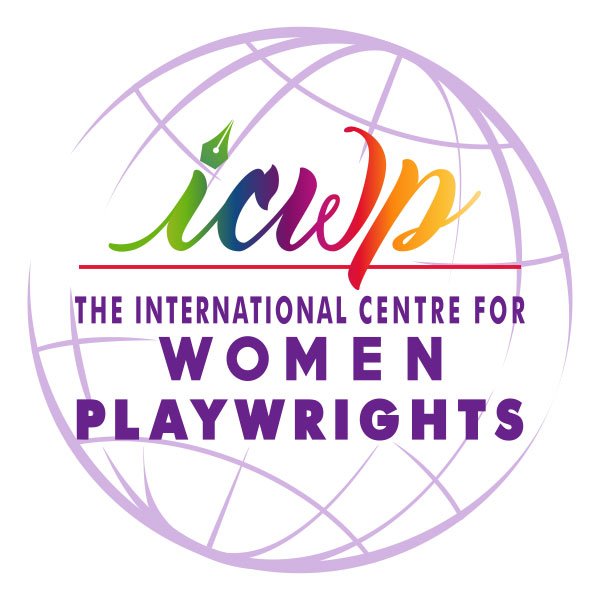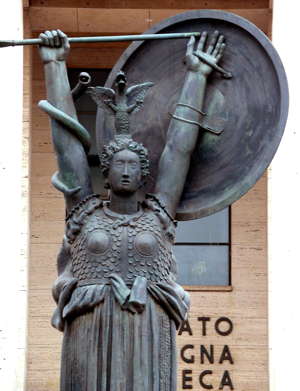
To be a woman is an art. It’s that special miraculous femininity which entails just the precise amount of female essence and womanly finesse, coupled with stern determination and ardent nurturing. The importance of women in the theatre is immeasurable. Women, after all, have been writing for centuries disguised and camouflaged beneath a sheath of male names, as the stigma of the weaker sex hounded the accomplishments of our great female novelists and lady artists.
If one fights for gender parity in any sphere, one is faced with the murderous task of storming the very yolk of that battle. It’s a brutal war, whence women playwrights and women in the shadowy web of the arts, contend with frustrated and confused fathers, jealous suspicious husbands, and most often, other competitive barracuda females not at all pleased with the sudden uprising of the other, talented members of their own sex.
Therefore, the fight for equality for women in male-dominated arts, and more specifically in the mystical theatrical Un-Godly world, is anything but subtle. Battleships sink; so do our struggling female compatriots. That’s all part of stepping into the foreground, shedding one’s inhibitions; grappling with one’s supposed limitations, bouncing back and forth against a wall upon which screams out the volatile title of one’s own femininity. That femininity which hopefully, if you are indeed a true female artist; you have come to wholeheartedly possess.
I have been cultivated as an uncultured pearl in the ghastly beast of the underbelly of the theatrical world. My parents who were immigrants from the Ex-Soviet Union, at one time labeled, “The Evil Empire”, by Former US President, Ronald Reagan, came to America without a penny but with a hatful of dreams, which often churned into muffled mute rain on the hectic melting-pot cobblestoned streets of New York City.
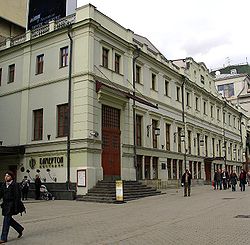
As Émigré’s, my folks managed an incredulous task- they toured with some of the most famous Russian icons of Moscow’s grandiose theatrical world, from the auspices of the Mayakovsky Academic Art Theatre which had celebrated its 90th anniversary last October, the heralded Moscow Art Theater, and the Russian Comedian, Arkady Raikin’s, Satirikon Theatre in Moscow, to name just a few Russian Theatres in the epicenter of the dramatic arts. I had the pleasure and sometimes the torture of touring with these infamous actors, across America, post ex-Soviet Prime Minster Mikhail Gorbachev’s Perestroika, or restructuring; during the heady putsch of the early 1990’s in Moscow, or during those three fateful days which shook the world and changed Russian fate and the ebbing landscape of dramatic art, forever.
I was so infused with theatre, with those glowing patriots of the theatre, with those stellar actors’ techniques, and with the awe-inspiring work of masterful directors. I was still a teenager yet I loved lounging in green-rooms, singing Russian folk songs in the back-ends of Greyhounds, traveling the world, in order to give myself entirely to the fragile magical promise of theatre and succumb to those divine talented waves beating against its boisterous shore. That’s how I became infected with the theatrical bug. That’s when I realized that the theatrical stage beckoned for women to fill every pore of its vital entity.
Women as spectators, woman set designers, women producers, directors, costume designers, actresses, scenic designers, sound designers, lighting designers, and of course, women of my profession, my calling; my chosen craft: women playwrights - those fearless pioneer artistic women who dared to tango with the sacred word - those beautiful women who used words for swords.
Two years ago, while working in Moscow, at the Mayakovsky Academic Art Theatre, I read an article in the Moscow Times, a paper for which I often contributed reviews on International Cinema and Theatrical productions, world-wide. The article stated that “If one person were chosen to serve as America’s prime link to every other theater tradition in the world, it would surely be Martha Coigney.”
This year, being a member of the League of Professional Women in Theatre and soon to be the Co-Chair of the League’s International Committee, with our motto to reach out and grab an artistic female voice and watch it dance in the limelight; I had the pleasure of meeting the Tony Award winning Ms. Coigney, and was most pleased to note that she is just as dedicated to her cause of drawing women artists to the foreground and giving them their due share of recognition, as she had ever been.
I was also drawn to the ICWP by the dedicated Ms. Elana Gartner, with whom I had exchanged various emails, as I was enlisted in aiding her with her press release about the inaugural International Centre for Women Playwrights 50/50 Applause Awards. Ms. Gartner introduced herself as “a member of the Dramatists Guild and a lurker on the Women's Initiative listserv”. She confessed that she had been “encouraged by the work that has been done to raise the profile of women playwrights over the past several years.”
And so she reached out to me personally, as one of the leaders of the Women’s Initiative (made up of members of the Dramatists Guild) to see if there was a way in which we could work together, so that we could spread the good news about this monumental award out to the theater community and into the press, thus continuing to raise awareness about the under-production of women playwrights. I was already working with Gwynn Macdonald on the movement of 50/50 in 2020 at that time, so I was only too happy to collaborate with Elana, with whom I had found much in common.
Furthermore, Ms. Gartner convinced me that I should join the ICWP, in order to make solid connections with other female playwrights. Indeed she was right! I believe that the ICWP not only connects women playwrights to each other but most importantly, opens up vast windows for opportunities which exist for women playwrights.
I had the pleasure of attending two ICWP Meetings in Chicago during the 2nd Annual Dramatists Guild Convention this August, and was literally blown away by the enormous talent at those two meetings, diverse, eclectic and international. ICWP has provided me with the incentive to launch my own company, The O’Neill Film and Theatrical Foundation, with a soul mission to fund women in theatre and in film, dedicated to the plight of gender parity in the arts.
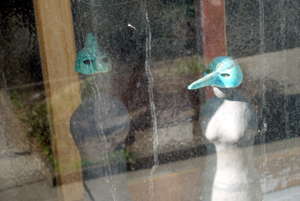
Personally, succeeding as a professional playwright in America’s nomadic theatrical landscape has been an uphill battle to hell. My experience as a female writer has had its twists and turns. I’ve been manipulated by men in theatre, by other women in the arts, led astray, neglected, rejected, tormented, fooled, and taken for granted. Yet, here I am, still standing erect, after nearly eighteen years in the theatre, and almost two decades in film, slaving as a screenwriter. I have not been defeated. There is no white flag at my doorstep! I have not been committed to a writer’s bedlam. I am still a poet.
I am still ruthless with my dialogue and harsh with my plots, and rash with my verse. Most importantly, however, I have pledged to fight for all women in the arts, for our due share of theatrical productions, off-off Broadway, Off-Broadway, and in the heart of Broadway. We’ve seen years of being underserved as female authors, actors, producers, and artists in general. But we’ve come a long way, baby! This year has been a grand year for women in theatre.
I was very pleased to see one of my dear NYU classmates, Ann Washburn’s work presented by Playwright’s Horizons. While male winners still predominate in the Tony Award directing categories; the Broadway community has proved itself more inclusive in matters of gender than the film industry. Besides the solo win for Katherine Bigelow, only three other women, Jane Campion, Sofia Coppola and Lina Wertmuller - have ever been nominated for directing films.
A sure indication of feminine power was portrayed this year at the Tony Awards as Cyndi Lauper became the first solo woman to win a Tony for her musical score in “Kinky Boots”, and Pam MacKinnon won her Tony for directing Edward Albee’s play “Who’s Afraid of Virginia Woolf?” Finally, women are being recognized for their distinct feminine voices. Women haven’t faded into the background along with superfluous theatrical props. Women are professionally engaging and growing ever so strong in the theatre.
There was a time when a woman would be judged by her attentiveness to her husband, by her dedication to motherhood and the grooming of her children. Those backward days are now particles of dust settling on a faded stereotypical horizon. Powerful women, strong and courageous have graced us with their expertise in the workplace and in every challenging field. Arts, humanities, and theatre, in particular, belong to the female sensibility as much as to the ever-eager male psyche.
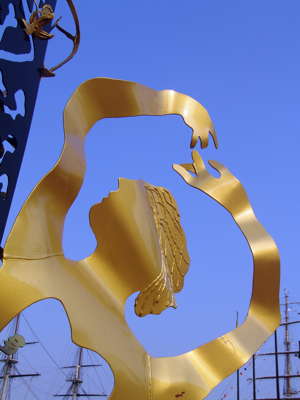
No longer shackled by the burden of family; women playwrights and directors are rising to the occasion with glorious bravado, paving the road to a new theatre - to the dawning of a sexless theatre in which the rules have changed, and the players are those with a certain talent; a talent to act, to write, to direct, to create a mesmerizing stage from scratch, reaching the zenith of human intellectualism and immaculate theatrical imagination with that unique feminine touch.
I am a child of theatre.
I have acquired the tools from my alma mater, New York University, where I had climbed to the pinnacle of an education and attained a proud Masters in Fine Arts from the Dramatic Writing Program and minored in Film and Television. All of my conscious life I had wanted to write. I didn’t want to get married. I never desired to raise a family; although I am proud, despite many hardships, that I am a mother of two and that after years of havoc heaped on my soul by severed relationships; I had finally found my soul-mate, albeit that happened in my late thirties. I have tinkered with all kinds of genre writing, all mediums and formats.
I’ve written articles for Lifestyle Magazine. I worked as a segment producer at Hard Copy and wrote for the Geraldo Rivera Show. I was editor of the New World Magazine. I taught screenwriting at the New York Film Academy, and Poetry and Advanced Playwriting Workshops at the Negro Ensemble Company and at the Frederick Douglass Creative Arts Center. I have penned a screenplay, entitled, Poor Liza, which had won the Grand Prix Garnet Bracelet in the Film and Literature Festival in Saint Petersburg, Russia, and which starred Academy Award Winning legendary actress, Lee Grant, and the late screen veteran and Academy Award Nominee, Ben Gazarra. I had completed my Ph.D. in Russian Literature in Film at the prestigious Gorky Literary Institute in Moscow.
I had written, single-handedly, a 400 page biblical catalogue entitled, “Essence of Life/ Essence of Art” exposing the spirit of Contemporary Art of Eastern Europe and Russia, with exhibitions presented at the State Hermitage Museum in St. Petersburg and the Ludwig Museum of Contemporary Art in Budapest, Hungary. Nonetheless, with that heaping pile of accomplishments beneath my belt, both academic and professional; I wear a badge of courage for being the “Ed Wood” of the Off-Broadway theatrical world.
I am the most prolific female playwright and the least recognizable. That fact no longer bothers me though, simply because I have found a collective, a group of like-minded lady playwrights who wish me well in my career and who serve as my support system, almost like the blood of life. And for all this and for the many more stupendous attributes to come in the future, I raise my vodka shot to the ICWP and to its bright glistening future! Happy 25th Anniversary, dear ICWP.
Website:
http://www.sophiaromma.net/

